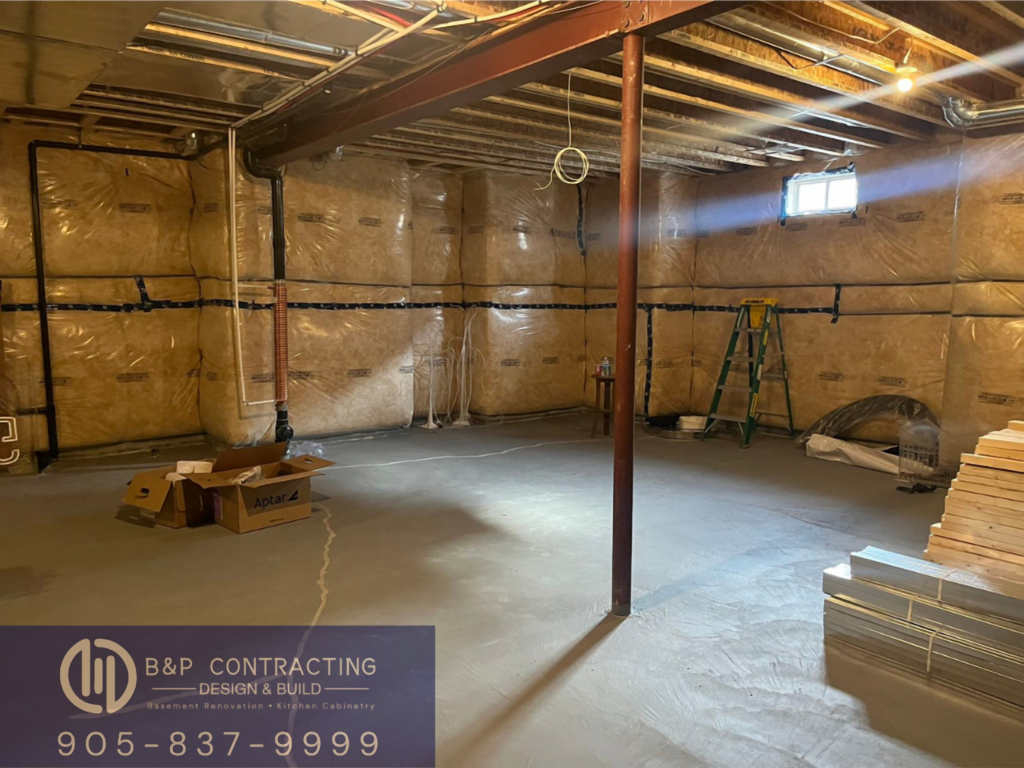A Guide to Soundproofing Your Basement Ceiling

When it comes to creating a peaceful and quiet living space, soundproofing is an essential consideration. Basements, often versatile spaces used for various purposes, can benefit significantly from soundproofing, particularly in the ceiling area. Whether you’re converting your basement into a home theater,a home office,rental unit, a personal studio, or just seeking a serene retreat, soundproofing the ceiling can make a substantial difference in minimizing noise transfer. In this guide, we’ll explore why soundproofing a basement ceiling is crucial and provide practical tips on how to achieve an acoustically comfortable space and the best insulation options for soundproofing, various methods for different basement types, and valuable tips to make the process smoother.
Best Insulation for Soundproofing Basement Ceiling:
Fiberglass Insulation:
Cost-effective and readily available, fiberglass insulation is a popular choice. While it may not be as effective as some alternatives, it still provides a reasonable level of sound absorption. Installation can be challenging, but hiring a professional ensures optimal results.
Rockwool Insulation:
Although pricier than fiberglass, rockwool is highly effective at absorbing sound. Its denser composition makes it an excellent choice for reducing both airborne and impact noise. Consider the long-term benefits of enhanced soundproofing when deciding on your budget.
Green Glue:
Green Glue is a unique product applied between two layers of drywall. It forms a flexible barrier that effectively absorbs sound. While it adds cost to your project, its efficiency in reducing noise makes it a worthwhile investment, especially for home theaters or recording studios.
Ways to Soundproof Different Basement Ceilings:
Unfinished Basement Ceiling:
The most effective way to soundproof an unfinished basement ceiling is to add mass. Simply adding a layer or two of drywall can significantly reduce sound transmission. This approach is practical and relatively straightforward.
Drop Ceiling:
Upgrade door seals and use door sealing kits to reduce noise transmission through the ceiling. While a drop ceiling itself doesn’t offer substantial soundproofing, combining it with additional measures like sealing gaps can make a noticeable difference.
Finished Basement Ceiling:
For finished basements, consider decoupling the ceiling from the floor above. Installing resilient channels between the joists creates a gap that helps minimise noise transmission. Mass loaded vinyl is another option, though it can be more expensive.Consider hiring a professional basement renovation company if you are unsure of the best approach or lack expertise. Professionals can assess your space and recommend the most effective soundproofing solution tailored to your needs.
In conclusion, soundproofing your basement ceiling is a versatile solution that enhances the functionality and tranquility of this space. If you’re unsure about the best approach or lack the expertise, consider hiring a professional basement renovation company. Experts can assess your space and recommend the most effective soundproofing solution for your needs.Whether you have specific activities in mind or simply want to create a more peaceful environment, investing in soundproofing can significantly improve your overall living experience. So, if you’re ready to make your basement a quieter and more enjoyable space, soundproofing is indeed a worthwhile endeavor.
